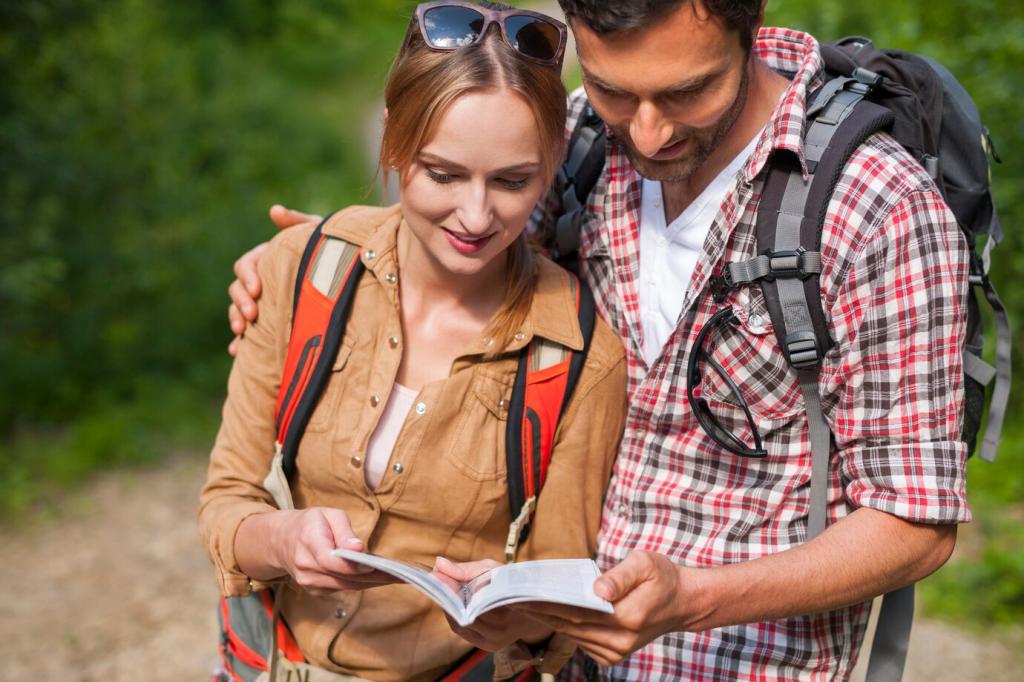Local Voices, Wild Places: The Role of Local Guides in Ecotourism
Chosen theme: The Role of Local Guides in Ecotourism. Step into communities where paths are stories, habitats are classrooms, and guides are the bridge between fragile ecosystems and curious travelers. Subscribe to follow new field notes and real-world lessons.
Why Local Guides Matter
A Sense of Place You Can Feel
A local guide doesn’t just point; they interpret. The scent of crushed sage, the wind’s shift before rain, footprints fading at dusk—these become meaningful when translated by someone whose childhood trails are now your path.

Cultural Bridges and Community Benefits
A good local guide protects communities from being staged. They set boundaries, gain consent for photos, and explain why certain ceremonies are private—transforming encounters into learning moments rather than spectacles.
Conservation on the Trail
Guides notice subtle distress signals: trampled moss turning gray, stressed lichens, nesting birds shifting calls. They redirect groups, minimize noise, and choose timings that allow wildlife to breathe while visitors still learn deeply.

Conservation on the Trail
It’s not just distance; it’s angles, shadows, and patience. A local guide teaches how to watch without changing animal behavior—waiting for natural pauses, adjusting silhouettes, and using cover to minimize disturbance.
Safety, Ethics, and Visitor Education
Yes, guides track storm cells and river levels. They also read group dynamics—anticipating fatigue, fear, or overconfidence. That human radar keeps decisions clear-headed and reduces emergencies before they ever escalate.


Safety, Ethics, and Visitor Education
Should you cross that log? Approach the cliff petroglyph? Pick a wildflower? A guide turns dilemmas into teachable moments, modeling how to weigh curiosity against respect for culture, species, and timeworn places.
Training, Certification, and Fair Pay
Growing Skills Without Losing Roots
The best programs blend emergency response, natural history, and language training with elder mentorship. Guides expand expertise while preserving the voices and practices that make their home places unique and resilient.
Certification That Fits the Landscape
Standards matter, but they must honor local context. Effective certification recognizes traditional knowledge, seasonal rhythms, and cultural protocols, ensuring safety without forcing a one-size-fits-all model onto diverse regions.
Fair Wages, Fair Futures
Ethical ecotourism pays living wages, includes insurance, and schedules rest. Ask operators about compensation transparency; your questions help build an industry where guides can thrive and stay rooted in their communities.
Tech, Storytelling, and the Future of Guiding
A guide may track routes on a handset while narrating how a grandmother navigated by stars and river song. Technology augments stories, but it’s the human thread that makes landscapes unforgettable and ethically navigable.
Tech platforms can spotlight local-led tours, publish revenue splits, and share conservation contributions. Travelers gain clarity, communities gain trust, and nature gains partners who can be held accountable by informed guests.
Apprentice programs pair youth with veteran guides, preserving language, ecological knowledge, and storytelling craft. Share this post with aspiring guides in your network and help keep wisdom alive on tomorrow’s trails.
Join our mailing list
